
France’s mediation efforts; an opportunity, not a threat
The editorial of Setareh Sobh focuses on why France’s efforts to mediate between Iran and America must be seen as an opportunity for Tehran to decrease the economic pressures on itself due to the US sanctions.
Abbas Araghchi, along with an economic and technical team, went to France to work on the specifics of France’s initiative to alleviate the tensions between Iran and America. More than anything else, it must be noted that France is trying to mediate between Iran and America after the Japanese prime minister failed in convincing Tehran to reach an agreement with America.
Macron’s mediation efforts between Iran and America goes back to Trump’s trip to France when the French president asked Trump to be allowed to mediate between the two countries. He first proposed a “freeze for freeze” plan, according to which Iran would stop reducing its nuclear obligations and America would cease enforcing more sanctions on Iran.
Iran rejected this proposal when America put sanctions on its supreme leader and its foreign minister. After failing in the first step, France, in the second step of its mediation, talked of giving concessions to Iran.
The Islamic Republic has announced that its preconditions for negotiations are the lifting of the US sanctions imposed on it and the US returning to the JCPOA. Now Macron has asked both sides to go back to the negotiation table; in return, a part of the sanctions on Iran’s oil exports will be lifted and Iran will return to its nuclear obligations.
Based on the released information, there has been speculation on three concessions to be made to Iran 1) Tehran to be permitted to sell 700,000 barrels of oil per day 2) Oil import exemptions renewed for Italy, Taiwan, Turkey, Japan, China, South Korea, India, and Greece 3) A credit fund of $15 billion to be created by the Europeans for Iran.
Setareh Sobh – September 3
Three causes of corruption
The editorial of Hamdeli focuses on the causes of economic corruption in Iran, explaining why its roots are in the country’s political structures.
Corruption has penetrated different layers of society, affecting security and peace in a serious way. That is why there must be a serious discussion about it to determine ways for countering corruption in society.
People in power, who put pressure on the judiciary and even on the judges dealing with corruption cases, protect those engaged in economic corruption. Consequently, without judicial involvement, there cannot be any fight against those engaged in large-scale economic corruption.
In addition, we must keep in mind that as long as the people in power are involved, there will be no legal confrontation with them. Therefore, the main problem is in the country’s political structures that have prepared the ground for economic corruption.
Three main problems can be pointed out. First, there is the issue of meddling in the banking system that has resulted in huge deferred payments to banks in Iran. Politically powerful people interfere in banking regulations and issues for their own advantage, thus creating one of the biggest economic issues in the country.
The second issue is giving big companies to certain individuals and entities in the name of privatization. As a result, big monopolies and pseudo-monopolies have been created and spread corruption in the country’s economy.
Finally, the third issue is manipulating the pricing system. Influential people have made huge profits for themselves by manipulating the pricing system and tariffs.
These three issues have made Iran’s economic system very inefficient. Currently, economic corruption has adversely affected development in the country. Flattery has become the main feature of bureaucracy in Iran, resulting in corruption being institutionalized in the country.
Without controlling corruption, significant features like trust, development, and progress will not be realized; a society that gets used to corruption must be ready to pay the price for it.
Hamdeli – September 3
Zarif’s ultimatum
The Editorial of Aftab Yazd seeks to explain why the Iranian Foreign Minister Mohammad Javad Zarif has changed his stance with regard to Iran taking the third step in reducing its commitments in the nuclear deal (JCPOA).
It seems that Zarif changed his own remarks on Iran taking the third step in cutting back its obligations in the JCPOA. Unlike what he had said before that Iran would take the third step by September 6, while complaining about Europe’s lack of measure in preserving the JCPOA, he has said now that Iran is ready not to take this step if it receives positive signs from Europe by Thursday.
The main point is that the nuclear issue is between Iran and America — and not Iran and Europe. Europeans are certainly interested in promoting peace, and unlike certain countries in the region, they will undoubtedly benefit from peace. So if Iran wants to resolve the issue through diplomacy, it shouldn’t confront Europe. Under current circumstances, Iran should try to exercise diplomacy.
Changes in Zarif’s remarks reflect certain advice he has been given in this regard. Zarif acts and talks in accordance with what he is asked to do. Right now, Zarif’s stance must be in accordance with the current conditions.
Aftab Yazd – September 2
Costs of portraying a dire situation
The editorial of Hamdeli focuses on how political factions that do not gain public votes in Iran turn to a costly agenda, in which they highlight the government’s shortcomings and ignore its possible achievements.
In societies where the emphasis is on real democracy, losers in elections admit their own defeat 24 hours after the voting is over and go back to their ordinary lives. They pursue their own goals while having a critical approach towards the government that is elected.
However, in Iran, political factions that haven’t been able to gain votes do their best to create a negative attitude towards the presiding government. These factions have an agenda to question the ongoing activities in the country in any possible way while portraying a dire picture of the situation.
Interestingly, these factions obviously align with foreign and domestic hostile groups, and they do not care about the costs of their approach. Distrust inflicts damaging costs on any society – costs that are hard to compensate and lead to despair as well as frustration among the public.
Under the current circumstances when Iran is engaged in international disputes, certain political factions earnestly and programmatically insists on portraying a dire situation by showing the inefficiency of the government.
Nevertheless, what is worse is that certain institutions or overseeing entities – without being accountable – take measures in cultural, economic, and foreign policy fields that have undeniable negative impacts. Such measures, it must be mentioned, have had huge palpable costs for Iran’s foreign policy.
All these costs are rooted in the fact that certain political groups only think of advancing their own partisan agendas, thus ignoring the country’s expediency.
Hamdeli – September 1

Rouhani orders a further reduction of Iran’s obligations in the nuclear deal;
Iran wants $15 billion to go back to fully implementing the JCPOA;
US sanctions a shipping line affiliated with the IRGC
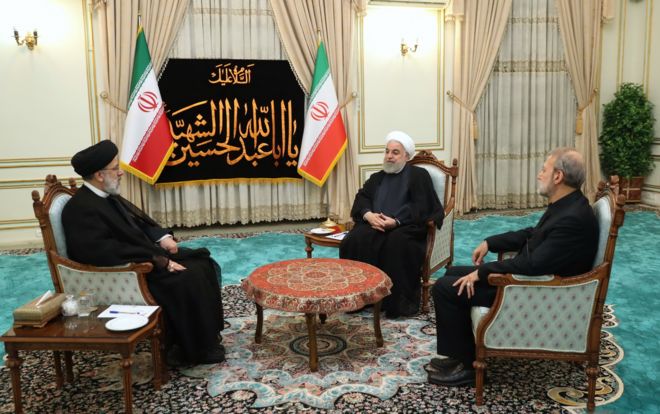
The Iranian President Hassan Rouhani has issued an order to cut back more on Iran’s obligations in the nuclear deal (JCPOA) from Friday. This is for the third time that Iran is breaching its obligations in the JCPOA.
By the Iranian president’s order, in this step, the Atomic Organization of Iran is obliged to start research and development in Iran’s nuclear field from Friday and to set aside all obligations in this regard as stipulated in the JCPOA. He further explained that from Friday, there will be more research and development in different kinds of centrifuges, new centrifuges, and anything that is needed for enrichment.
In the meantime, Abbas Araghchi, Deputy to the Iranian foreign minister, said that Iran’s full return to the implementation of the nuclear deal depends on receiving 15 billion dollars in a period of 4 months.
Araghchi urged that Iran will return to the full implementation of the JCPOA if it can sell its oil and gain its revenues without any restrictions. The credit line of about $15 billion, according to Araghchi, will be for a 4-month period until the end of 2019. He urged if Tehran gets this credit line, Iran will be ready to negotiate with the P4+1.
At the same time, America has put sanctions on a shipping line run by the IRGC, saying that this shipping line has been used to benefit the Syrian President Bashar Al Assad by selling oil. Also, 16 companies, 10 individuals and 11 ships have been included in the list of US sanctions against Iran.
One of the sanctioned shipping lines is called Mehdi Group and is reportedly located in India. Its CEO is Ali Zaheer Mehdi who, according to the US Treasury, is in charge of Iranian oil tankers.
BBC Persian
Euro news
Hassan Rouhani admits to no role in policymaking
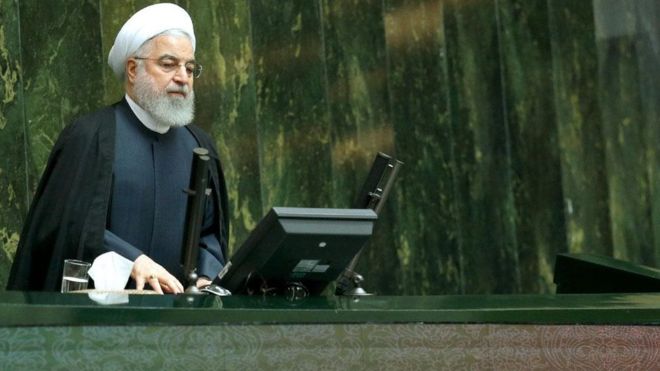
Last week, the Iranian President Hassan Rouhani said that he is ready to meet with any official for “preserving the interests of Iranian citizens”. Hours after these remarks, the U.S. and French presidents talked of a possible meeting between Hassan Rouhani and Donald Trump. The day after, Rouhani backed off from his remarks calling such a meeting impossible.
This week, the Iranian president claimed that those remarks were misunderstood. Rouhani stated, “We have made no decision for having bilateral negotiation with America,” urging that “our essential policies are determined by the Supreme Leader [Ali Khamenei]”. He added, “We are all in the same path and we have no differences on the national issues”.
France has reportedly proposed to open a credit account for purchasing Iran’s oil. According to Iranian and western sources, France says if Iran remains fully committed to the JCPOA, it will launch a credit line of $15 billion by the end of this year. Launching the credit line requires the United States’ consent.
However, following the announcement of new sanctions against the IRGC’s Quds Forces, Brian Hook, US Special Representative for Iran, emphasized that there will be no exemptions from US sanctions for buying and selling Iran’s oil. He urged that what would continue from now on would be maximum pressure and new sanctions.
BBC Persian
Radio Farda
Victims of child marriage in Iran
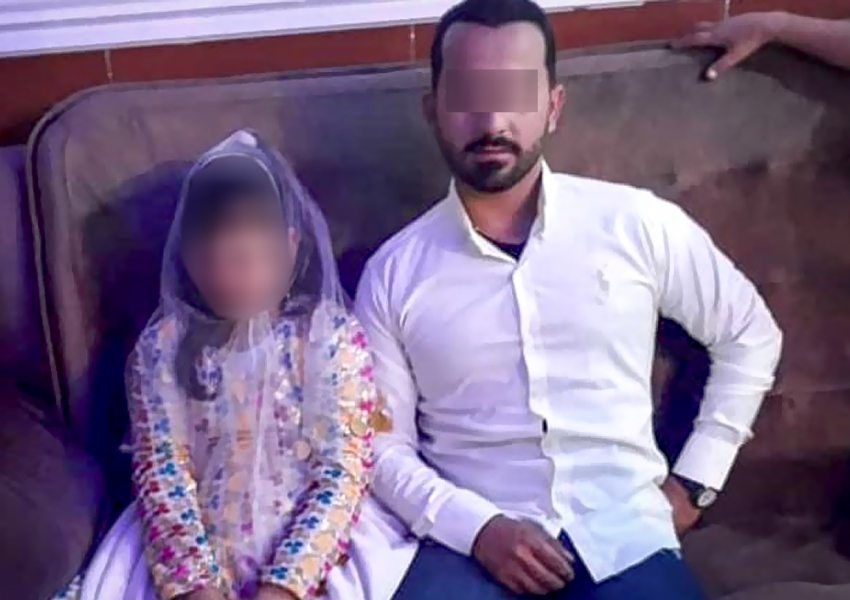
A video clip of a little girl marrying a man went viral this week. In this clip, a little girl is married to a young man who is sitting beside her, amidst the happy, and cheerful relatives of both. The release of the video was followed by strong reactions, with some calling child marriage a crime and some asking Iran’s prosecutor to stop this marriage.
After the video of the marriage went viral resulting in anger among the public, the marriage was annulled.
According to UNICEF, the marriage of children under 18 is considered child marriage and is a violation of human rights. The legal age of marriage for girls is 13 and for boys 15. In addition, according to civil law in Iran, it is even possible for girls under 13 and boys under 15 to be married, depending on the parents’ permission and with the court’s recommendation.
Iranian child rights activists have tried to change the law of child marriage. Women factions in the parliament have sought to pass laws for increasing the age of marriage in Iran and preventing the marriage of children. All these efforts have come to no fruition.
According to Tayebeh Siavoshi, a member of a woman faction in parliament, statistics show that the marriage of girls (between the ages of 10 to 14) comprised 7% of marriages in the first half of 2018, i.e. 17,486 cases. Nevertheless, there are no accurate statistics in this regard, as many child marriages are not registered.
In 2018, a plan was proposed in the parliament to increase the legal age of children marrying, but it was rejected by the parliament’s judiciary commission, and it was called problematic from the viewpoint of Islamic jurisprudence and social norms.
The victims of child marriage usually suffer from mental problems. Little girls who marry at an early age are most likely to suffer from mental abuse and domestic violence. Studies show that child marriage is an issue in families that suffer from poverty, addiction, and illiteracy.
Iran International
Deutche Welle
Iran’s oil production drops to 2.1 million barrels;
25% increase in liquidity
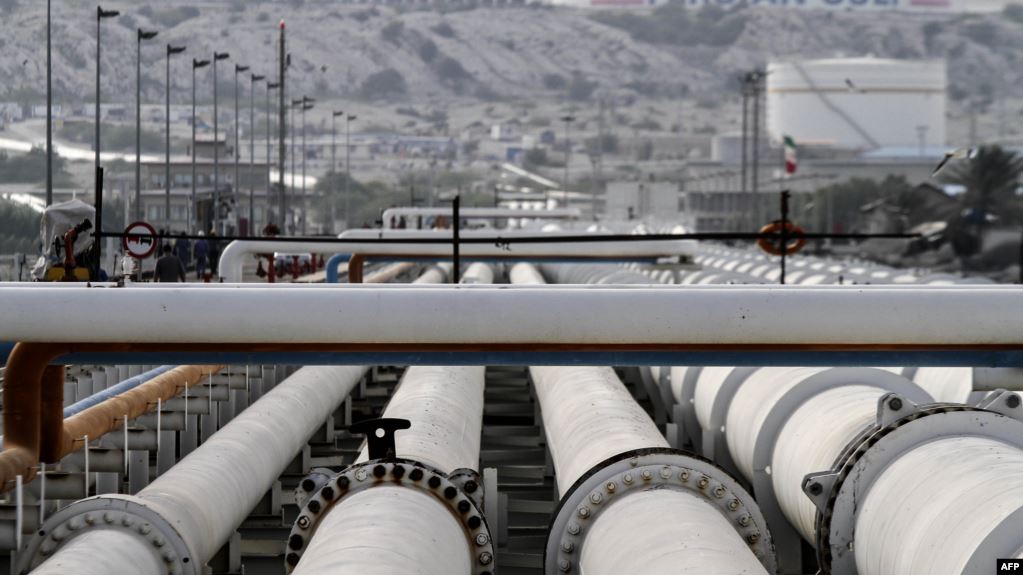
In August 2019, Iran’s oil production was cut to 2.1 million barrels per day (bpd), which is the lowest in the past 33 years.
This number is 50,000 barrels less than July, and it is 1.7 million bpd less than before the US sanctions were reimposed against Iran. According to Reuters, production of 2.1 million bpd is the least since 1986.
Before the revolution, Iran produced 6 million bpd, but after the revolution and the Iran-Iraq war, oil production was significantly reduced. Nevertheless, after the war and before the 2012 sanctions, Iran’s oil production reached about 4 million bpd.
Currently, China and Syria are the only customers that openly buy Iran’s oil. The statistics of China’s Customs show that this country has imported 233,000 bpd from Iran on average from the beginning of May to the end of July. It is not clear whether China pays any money to Iran for the imported oil.
Domestic consumption of crude oil in Iran is about 1.8 million bpd, and production of 2.1 million bpd in August shows that Iran has only 300,000 barrels of extra oil to export. Before the US sanctions, Iran exported 2.5 million bpd of oil and gas condensate.
Meanwhile, Iran’s Central Bank in its recent monthly report announced that liquidity increased and reached 1.980 trillion tomans, showing a 25% increase compared to last year.
An increase in liquidity is one of the main factors of inflation. According to the latest statistics by Iran’s Statistical Center, the rate of inflation reached 42.2% for August, which, more than any other thing, affected all kinds of food.
Radio Farda
Fivefold increase in Iran’s export of oil to Oman
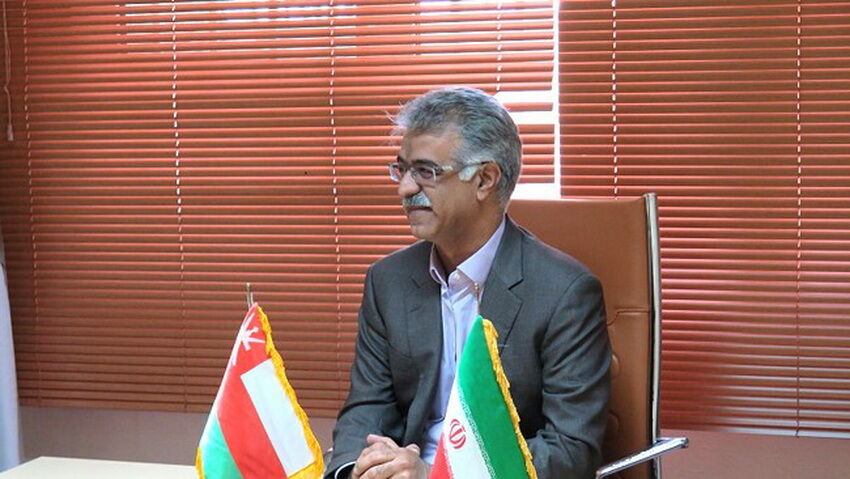
The Chairman of the Iran-Oman Joint Chamber of Commerce, Mohsen Zarabi, announced that during the past six years, Iran’s export to Oman has had a fivefold increase and Iran is after boosting it.
In the meeting of Oman’s Ambassador to Iran with businessmen and merchants from Iran’s West Azerbaijan province, Mohsen Zarabi asserted that before Rouhani’s government, Iran’s exports to Oman were $146 million, but they have now reached $728 million.
According to Zarabi, Iran’s trade with Oman, too, has had significant growth, from $220 million in 2003 to $1.161 billion now. He added that Oman’s total imports are annually about $20 billion – with Iran’s share being at 3.6%. Iran seeks to increase this amount to 10% reaching $2 billion per year.
Zarabi emphasized infrastructural developments to promote Oman’s trade relationship with Iran, saying that businessmen and merchants can use these development projects to expand trade with Oman.
IRNA
